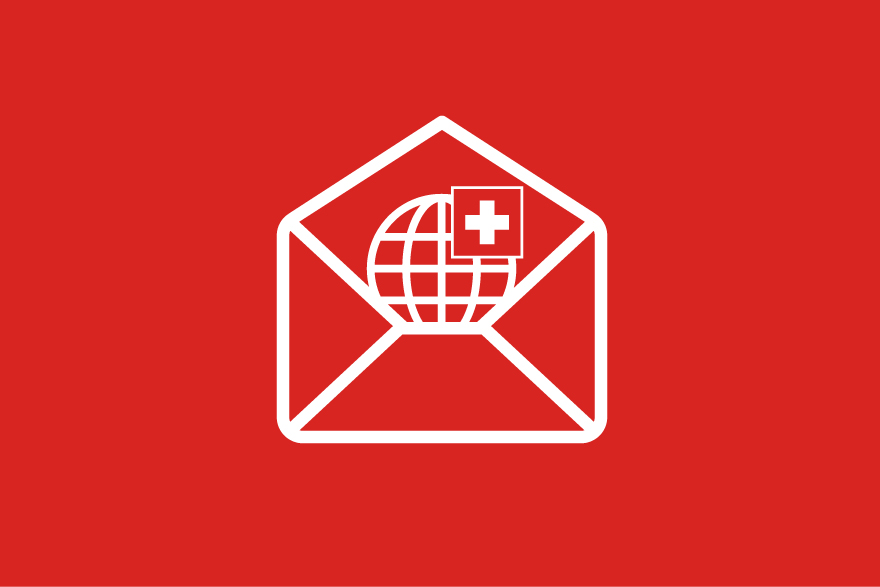
Swiss family, Swiss dialect, but ‘not integrated’: migration officials respond

The case of a Swiss emigrant’s adopted daughter, who faces deportation, has caused a major stir. Swissinfo has now asked the authorities how descendants of Swiss expats can prove they are integrated in Switzerland.
In October, Swissinfo and the Swiss German-language tabloid Blick reported on the story of Gabriela Purtschert, who grew up in Ecuador as the adopted daughter of a Swiss emigrant and was raised with Swiss culture and traditions.
For 16 years, she has lived in Switzerland where she studied, earned a doctorate and worked for a federal research institute. But now, with her temporary work contract over and no new job lined up, she faces deportation. Purtschert does not hold a Swiss passport.

More
Adopted daughter of Swiss Abroad faces deportation from Switzerland
The Zurich migration office revoked her residence permit claiming, among other reasons, that she was unable to prove “deeper integration”. Why Purtschert, who is fluent in Swiss German and the granddaughter of a Swiss cheesemaker, is deemed “not integrated” remains a mystery.
The head of legal services at the Zurich migration office declined to answer Swissinfo’s questions, citing ongoing proceedings.
Integration within Swiss Abroad community
The official also declined to answer general questions on how his office assesses the integration of Swiss emigrants’ descendants who do not hold a Swiss passport, saying he could not comment “while proceedings are ongoing”.
The State Secretariat for Migration (SEM), however, was more forthcoming.
Integration within the Swiss Abroad community in someone’s home country “may count towards personal and social integration”, said a SEM spokesperson. If integration is a factor in decisions on residence status, “family and cultural ties to Switzerland are also taken into account”, she said.
The fact that someone like Purtschert is entered in the Swiss civil register as the daughter of a Swiss man and a Swiss woman does not appear to carry any weight. “First and foremost, it is about the nationality of the person in question,” and not that of the parents, said the spokesperson. “A connection to Switzerland” might only come into play in exceptional hardship cases.
“Speaking Swiss German alone is not enough to prove integration,” she explained. What really matters is “respect for public safety and order, adherence to the values of the federal constitution, language skills, and participating in work life and education.”
Do Swiss expats’ descendants get special treatment?
Granting descendants of Swiss emigrants without the coveted red passport a permanent residence permit “under special conditions” would require a legal provision, said the spokesperson. But no such provision exists. The SEM points out that the government has already come out against introducing special quotas for descendants of Swiss nationals from countries outside the European Union.
Nevertheless, there is a glimmer of hope for some. “Foreign descendants (first generation only) of Swiss nationals” can obtain a residence permit if they meet the requirements for repatriation or facilitated naturalisation, according to the SEM.
Such cases are treated as an “exception to the ordinary admissions requirements”. According to the SEM, there is no legal entitlement, but cantonal migration offices must review each case individually. For the process of facilitated naturalisation or repatriation, the SEM adds, applicants sometimes need not only a strong connection to Switzerland but also residence in the country.
Last August, Swissinfo reported on this special rule that allows employment without being subject to quotas or the requirement to give priority to Swiss or EU citizens, which is known as Inländervorrang (priority for domestic workers).

More
A spark of hope for Swiss descendants without a Swiss passport
The case of Gabriela Purtschert
But Purtschert’s case still leaves pressing questions unanswered. In particular, the criterion of “integration into the Swiss Abroad community” raises one key question: should the descendant of a Swiss citizen with emotional ties to Switzerland really be obliged to prove integration by conventional standards?
If a person’s closest relatives are Swiss, every conversation with their father or at a family gathering could be seen as an act of integration into Swiss society, even if that integration takes place in Ecuador.
Purtschert has spent 16 years in Switzerland, where she earned an education that has turned her into a highly skilled professional.
But in the view of the Zurich migration office, no “particular close or obvious deep integration” has taken place during that time.
Edited by Balz Rigendinger. Adapted from German by Billi Bierling/gw

More
Everything you need to know about the Swiss Abroad

In compliance with the JTI standards
More: SWI swissinfo.ch certified by the Journalism Trust Initiative




























You can find an overview of ongoing debates with our journalists here . Please join us!
If you want to start a conversation about a topic raised in this article or want to report factual errors, email us at english@swissinfo.ch.